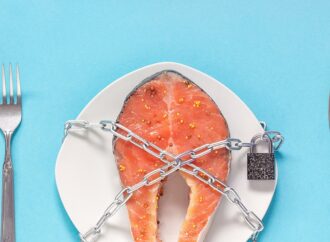Recent Outbreak at a Shawarma Outlet
Kerala reported a fresh case of food poisoning at Istanbul Shawarma, located on Attakulangara-Mankad Road in Thiruvananthapuram. Several people who ate there reported symptoms of illness.
- Around 30 people developed symptoms after eating shawarma on Saturday.
- All were treated at local hospitals and discharged shortly after.
- The Food Safety Department collected food samples; lab results are expected in a week.
Recurring Food Safety Lapses
Despite past incidents, many food businesses continue to repeat unsafe practices. Often, minimal penalties fail to act as a deterrent, and restaurants reopen without addressing the root causes.
- Establishments usually reopen quickly after minor penalties.
- “New-gen” foods like shawarma and kootu mandi are often involved in recent outbreaks.
- Main issues include unhygienic preparation and expired or poorly stored ingredients.
- Many businesses still ignore health guidelines, including listing cooking times and expiry dates, even though these rules were issued two years ago.
Mayonnaise: A Common Culprit in Shawarma Dishes
Mayonnaise used in many shawarma recipes poses a high risk when not handled correctly. It often contains raw eggs, which can harbor harmful bacteria.
- Shawarma often includes mayonnaise made from raw eggs, oil, and lemon juice.
- The Health Department requires the use of pasteurised eggs and storage at 4°C or below.
- Many outlets continue to use unpasteurized eggs, raising the risk of contamination.
- Improper handling can cause Salmonella infection, leading to fever and diarrhoea.
Poor Hygiene Practices Add to the Danger
Even small lapses in hygiene can lead to serious health consequences. Proper sanitation and handling are critical at every step of food preparation.
- Unclean eggs and cooking surfaces increase the risk of bacterial contamination.
- Food handlers must use clean water and maintain strict personal hygiene.
- Mistakes in mayonnaise prep can cause rapid bacterial growth, turning the food toxic.
- Experts also warn that excessive mayonnaise consumption can lead to health problems due to its high fat and calorie content.
FSSAI’s Guidelines for Mayonnaise Use
To ensure consumer safety, FSSAI recommends strict timelines for preparing and consuming mayonnaise. Clean handling and storage are essential.
- Consume mayonnaise within two hours of preparation.
- If refrigerated, use within four hours maximum.
- Thoroughly clean containers before reuse to prevent contamination.
- Many establishments still neglect these safety measures, keeping consumers at continued risk.
Source: Mathrubhumi
 Food Manifest
Food Manifest 


















